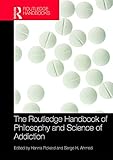Chapter 5 Addiction : The belief oscillation hypothesis
Material type: ArticleLanguage: English Publication details: Taylor & Francis 2019Description: 1 electronic resource (10 p.)ISBN:
ArticleLanguage: English Publication details: Taylor & Francis 2019Description: 1 electronic resource (10 p.)ISBN: - 9781315689197
- 9781138909281
Open Access star Unrestricted online access
In popular, philosophical and many scientific accounts of addiction, strong desires and other affective states carry a great deal of the explanatory burden. Much less of a role is given to cognitive states than to affective. But as Pickard and Ahmed (2016; see also Pickard 2016) note, addiction may be as much or more a disorder of cognition as of compulsion or desire. Pickard’s focus is on denial. In this chapter my focus will be different. I will argue that in many cases at least, we can explain the lapses of abstinent addicts by way of processes that do not involve motivated reasoning (as denial or self-deception plausibly do). Mechanisms that have the role of updating beliefs in response to evidence may alter addicts’ judgments concerning what they have most reason to do (in the precise circumstances in which they find themselves), and thereby cause them to act accordingly
Wellcome Trust
Creative Commons https://creativecommons.org/licenses/by/4.0/ cc https://creativecommons.org/licenses/by/4.0/
English
There are no comments on this title.

